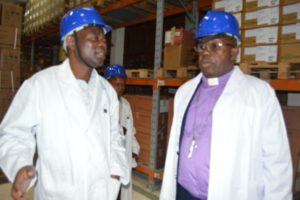Ref: Ref. Kaale E, Manyanga V, Chambuso M et al. (2016) The Quality of Selected Essential Medicines Sold in Accredited Drug Dispensing Outlets and Pharmacies in Tanzania. PLoS ONE 11(11): e0165785.
2017 PlosOne Quality of Selected Essential Medicines in Tanzania
Dear BeCause Health friends, dear friends of the new QUAMED,
This study, recently published in Plos One, investigated the quality of a select group of medicines sold in accredited drug dispensing outlets and pharmacies in different regions of Tanzania. The researchers collected and analysed 242 samples of amoxicillin trihydrate, artemether-lumefantrine (ALu), co-trimoxazole, ergometrine maleate, paracetamol, and quinine. The study was designed as “a risk-based assessment to identify pharmaceutical quality issues with a higher risk profile analysis”, with focus on the identity and content of the medicines. Therefore, as it often happens in this kind of survey, dissolution and impurity testing were not conducted.
Overall the study revealed a high rate of 92.6% of samples that met the quality standards for identity and content in active ingredient. This may be seen as an indicator that the supply chain is well secured (even if we have to keep in mind that the quality assessment was not comprehensive).
The overall failure rate of 7.4%, was largely limited to ergometrine maleate, and likely due to poor distribution and storage rather than poor manufacturing practices (ergometrine maleate injections are sensitive to tropical temperatures and light, and the sampled outlets and pharmacies do not have refrigeration). The Authors conclude that policy makers need to reconsider putting emphasis on the need of refrigeration for ergometrine maleate, and that the regulatory authority could revise its post marketing surveillance strategy to use ergometrine maleate as a surrogate marker for the integrity of the cold chain.



